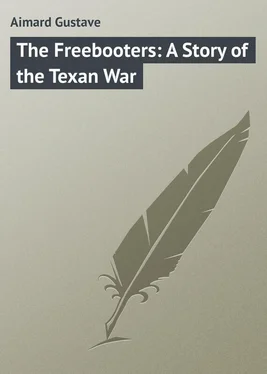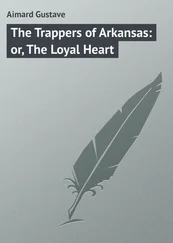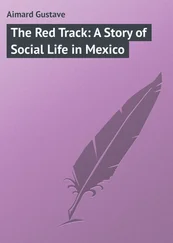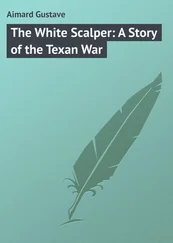Gustave Aimard - The Freebooters - A Story of the Texan War
Здесь есть возможность читать онлайн «Gustave Aimard - The Freebooters - A Story of the Texan War» — ознакомительный отрывок электронной книги совершенно бесплатно, а после прочтения отрывка купить полную версию. В некоторых случаях можно слушать аудио, скачать через торрент в формате fb2 и присутствует краткое содержание. Жанр: foreign_prose, на английском языке. Описание произведения, (предисловие) а так же отзывы посетителей доступны на портале библиотеки ЛибКат.
- Название:The Freebooters: A Story of the Texan War
- Автор:
- Жанр:
- Год:неизвестен
- ISBN:нет данных
- Рейтинг книги:3 / 5. Голосов: 1
-
Избранное:Добавить в избранное
- Отзывы:
-
Ваша оценка:
- 60
- 1
- 2
- 3
- 4
- 5
The Freebooters: A Story of the Texan War: краткое содержание, описание и аннотация
Предлагаем к чтению аннотацию, описание, краткое содержание или предисловие (зависит от того, что написал сам автор книги «The Freebooters: A Story of the Texan War»). Если вы не нашли необходимую информацию о книге — напишите в комментариях, мы постараемся отыскать её.
The Freebooters: A Story of the Texan War — читать онлайн ознакомительный отрывок
Ниже представлен текст книги, разбитый по страницам. Система сохранения места последней прочитанной страницы, позволяет с удобством читать онлайн бесплатно книгу «The Freebooters: A Story of the Texan War», без необходимости каждый раз заново искать на чём Вы остановились. Поставьте закладку, и сможете в любой момент перейти на страницу, на которой закончили чтение.
Интервал:
Закладка:
Tranquil looked at the warrior in surprise. He smiled.
"Black-deer has no secret from his brother," he said, softly; "the Pale hunter will wait; soon he shall know all."
"My brother is free to speak or be silent; I will wait."
The conversation ceased here. The Sachem had wrapped himself in his buffalo robe, and did not appear disposed, to give any further explanation at present. Tranquil, restrained by the duties of hospitality, which in the desert prohibit any interrogation of a guest; imitated the Chiefs reserve; but the silence had lasted but a few minutes, when the hunter felt a light hand laid on his shoulder, while a soft and affectionate voice murmured in his ear: – "Good morning, father."
And a kiss completed the silence.
"Good-morning, little one," the hunter replied, with a smile; "did you sleep well?"
"Splendidly, father."
"And you have rested?"
"I no longer feel fatigued."
"Good; that is how I like to see you, my darling girl."
"Father," the inquisitive maiden said, as she looked around, "have visitors arrived?"
"As you see."
"Strangers?"
"No, old friends, who, I hope, will soon be yours."
"Redskins?" she asked with an instinctive start of terror.
"All of them are not wicked," he answered with a smile: "these are kind." Then, turning to the Indian woman, who had fixed her black velvet looking eyes on Carmela with simple admiration, he called out, "Singing-bird!"
The squaw bounded up like a young antelope. "What does my father want?" she asked, bowing gently.
"Singing-bird," the hunter continued, "this girl is my daughter, Carmela," and taking in his bony hand those of the two women, he clasped them together, adding with emotion, "Love one another like sisters."
"Singing-bird will feel very happy to be loved by the White lily," the Indian squaw replied; "for her heart has already flown towards me."
Carmela, charmed at the name which the squaw with her simple poesy had given her, bent down affectionately to her and kissed her forehead.
"I love you already, sister," she said to her, and holding her by the hand, they went off together twittering like two nightingales. Tranquil looked after them with a tender glance. Black-deer had witnessed this little scene with that Indian phlegm which nothing even disturbs: still, when he found himself alone with the hunter, he bent over to him, and said in a slightly shaking voice, —
"Wah! my brother has not changed: the moons of winter have scattered snow over his scalp, but his heart has remained as good as when it was young."
At this moment the sleeper awoke.
"Hilloh!" Loyal Heart said gaily, as he looked up at the sun, "I have had a long sleep."
"To tell you the truth," Lanzi observed, "I am not an early bird either: but nonsense! I will make up for it. The poor beasts of horses must be thirsty, so I will give them water."
"Very good!" said Tranquil; "By the time you have done that, breakfast will be ready."
Lanzi rose, leaped on his horse, and seizing the lasso of the others, went off in the direction of the stream without asking questions relative to the strangers. On the prairie it is so: a priest is an envoy of God, whose presence must arouse no curiosity. In the meanwhile Loyal Heart had also risen: suddenly his glance fell on the Indian Chief, whose cold eye was fixed on him: the young man suddenly turned pale as a corpse, and hurriedly approached the Chief.
"My mother!" he exclaimed in a voice quivering with emotion, "my mother – "
He could say no more. The Pawnee bowed peacefully to him.
"My brother's mother is still the cherished child of the Wacondah," he answered in a gentle voice; "her heart only suffers from the absence of her son."
"Thanks, Chief," the young man said with a sigh of relief; "forgive this start of terror which I could not overcome, but on perceiving you I feared lest some misfortune bad happened."
"A son must love his mother: my brother's feeling is natural; it comes from the Wacondah. When I left the Village of Flowers, the old greyhead, the companion of my brother's mother, wished to start with me."
"Poor ño Eusabio," the young man muttered, "he is so devoted to us."
"The Sachems would not consent; greyhead is necessary to my brother's mother."
"They were right, Chief; I thank them for retaining him. Have you followed my trail from the village?"
"I did."
"Why did you not awake me on your arrival?"
"Loyal Heart was asleep. Black-deer did not wish to trouble his sleep: he waited."
"Good! my brother is a Chief; he acted as he thought advisable."
"Black-deer is intrusted with a message from the Sachems to Loyal Heart. He wishes to smoke the calumet in council with him."
"Are the reasons that have brought my brother here urgent?"
"They are."
"Good! my brother can speak, I am listening."
Tranquil rose, and threw his rifle over his shoulder.
"Where is the hunter going?" the Indian asked.
"While you tell Loyal Heart the message I will take a stroll in the forest."
"The white hunter will remain; the heart of Black-deer has nothing hidden from him. The wisdom of my brother is great; he was brought up by the Redskins; his place is marked out at the council fire."
"But perhaps you have things to tell Loyal Heart which only concern yourselves."
"I have nothing to say which my brother should not hear; my brother will disoblige me by withdrawing."
"I will remain, then, Chief, since such is the case."
While saying these words, the hunter resumed his seat, and said: "Speak, Chief, I am listening."
The methodical Indian drew out his calumet, and, to display the importance of the commission with which he was entrusted, instead of filling it with ordinary tobacco, he placed in it morhichee , or sacred tobacco, which he produced from a little parchment bag he took from the pouch all Indians wear when travelling, and which contains their medicine bag, and the few articles indispensable for a long journey. When the calumet was filled, he lit it from a coal he moved from the fire by the aid of a medicine rod, decorated with feathers and bills.
These extraordinary preparations led the hunters to suppose that Black-deer was really the bearer of important news, and they prepared to listen to him with all proper gravity. The Sachem inhaled two or three whiffs of smoke, then passed the calumet to Tranquil, who, after performing the same operation, handed it to Loyal Heart. The calumet went the round thus, until all the tobacco was consumed.
During this ceremony, which is indispensable at every Indian council, the three men remained silent. When the pipe was out, the Chief emptied the ash into the fire, while muttering a few unintelligible words, which, however, were probably an invocation to the Great Spirit; he then thrust the pipe in his girdle, and after reflecting for some moments, rose and began speaking.
"Loyal Heart," he said, "you left the Village of Flowers to follow the hunting path at daybreak of the third sun of the moon of the falling leaves; thirty suns have passed since that period, and we are hardly at the beginning of the moon of the passing game. Well, during so short a period many things have occurred, which demand your immediate presence, in the tribe of which you are one of the adopted sons. The war hatchet, so deeply buried for ten moons between the prairie Comanches and the Buffalo Apaches, has suddenly been dug up in full council, and the Apaches are preparing to follow the war trail, under the orders of the wisest and most experienced Chiefs of the nation. Shall I tell you the new insults the Apaches have dared to offer your Comanche fathers? What good would it be? Your heart is strong, you will obey the orders of your fathers, and fight for them."
Читать дальшеИнтервал:
Закладка:
Похожие книги на «The Freebooters: A Story of the Texan War»
Представляем Вашему вниманию похожие книги на «The Freebooters: A Story of the Texan War» списком для выбора. Мы отобрали схожую по названию и смыслу литературу в надежде предоставить читателям больше вариантов отыскать новые, интересные, ещё непрочитанные произведения.
Обсуждение, отзывы о книге «The Freebooters: A Story of the Texan War» и просто собственные мнения читателей. Оставьте ваши комментарии, напишите, что Вы думаете о произведении, его смысле или главных героях. Укажите что конкретно понравилось, а что нет, и почему Вы так считаете.












